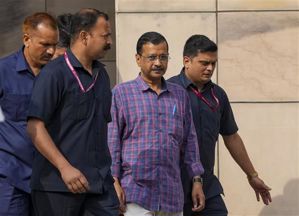Sumit Hakhoo
Tribune News Service
Jammu, March 4
Some rituals associated with the way displaced Pandits celebrate ‘Shivratri’ have changed after their exodus from the Valley about 26 years ago. However, one thing that has not been forgotten and continues till date is the tradition of mocking the last Afghan Governor Jabbar Khan, who ruled Kashmir during the 18th century.
A day after the nightlong ‘Mahashivratri’ prayers is called “salaam”. It a Persian word used to greet people in many Muslim countries and as per tradition, members of the Muslim community used to visit Pandits and greet them on the day, a norm till 1990 when eruption of militancy forced 3.50 lakh Hindus to leave their homes in Kashmir. According to a historical version, the word ‘salaam’ got incorporated in Pandits’ tradition when Jabbar Khan forced Pandits to celebrate ‘Mahashivratri’ in July.
It is said that Jabbar Khan told people that he wanted to see whether it would snow if ‘Shivratri’ is celebrated in the summer.
Snowfall around ‘Mahashivratri’ is considered auspicious and it generally used to snow during the fortnight-long festival, which starts with the first day of waning moon of Phalguna.
The inevitable happened and it snowed, surprising people who later came to pay obeisance to the “Vatak Razae (Lord Shiva)” and offer their ‘salaam’.
It is said the entire population of Kashmir, including Muslims, suffered during the Pathan rule between 1752 and 1819 AD. It is considered the worst phase in the medieval history of the Valley. Sarcastically, Kashmiris would recite “wuchton yi Jabbaar Jandah, haaras ti kurun wandah! (look at this wretched Jabaar in rags, he turned summer into winter)”.
Some families in exile still recite the line on the conclusion of rituals, with a hope that one day they will be able to return to their homes in the Valley.
This year ‘Mahashivratri’ will be celebrated across the Indian-subcontinent on March 7, while rituals in Pandit households have already begun.
“On this day, our Muslim neighbours would greet and celebrate with us. It was a much awaited day in the Valley after Eid,” said MK Santoshi, writer and poet.
Older generation living in camps in Jammu and other parts of the country still feel nostalgic about festivities attached to ‘Mahashivratri’ in Kashmir, where Muslims would supply everything needed for the rituals. “We lost the composite culture. I have sweet memories of pre-migration era. There used to be a lot of excitement among Muslims, especially traders. I used to visit my friends and neighbours and join them over lunch or dinner. But now it is different as most of them live outside the Valley,” said Dr Shafqat Khan, Medical Superintendent, GB Pant Hospital, Srinagar.


























